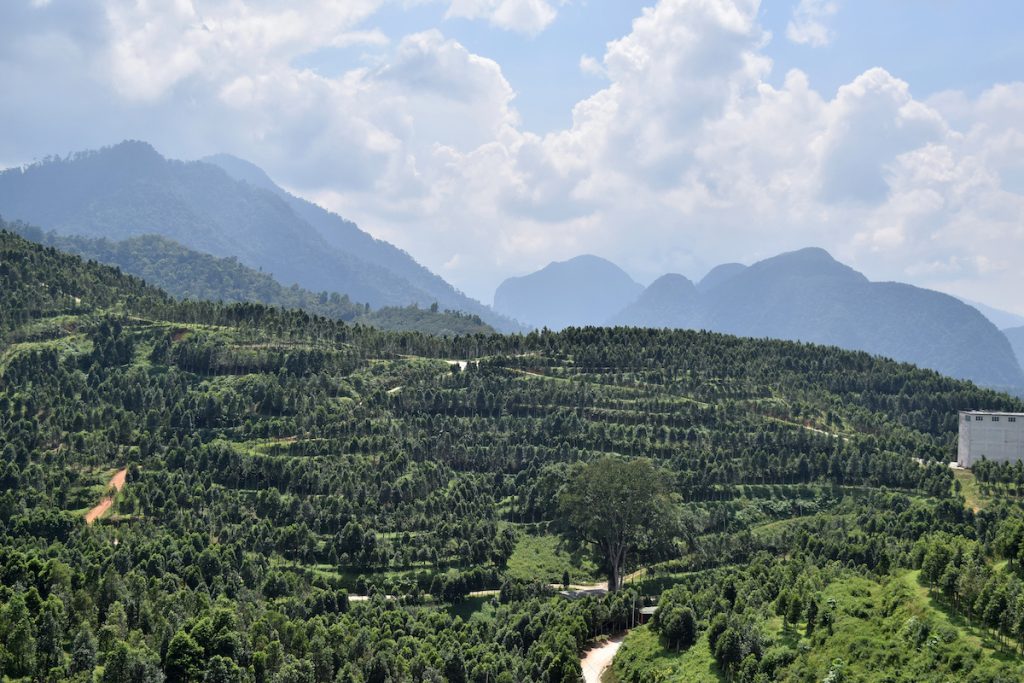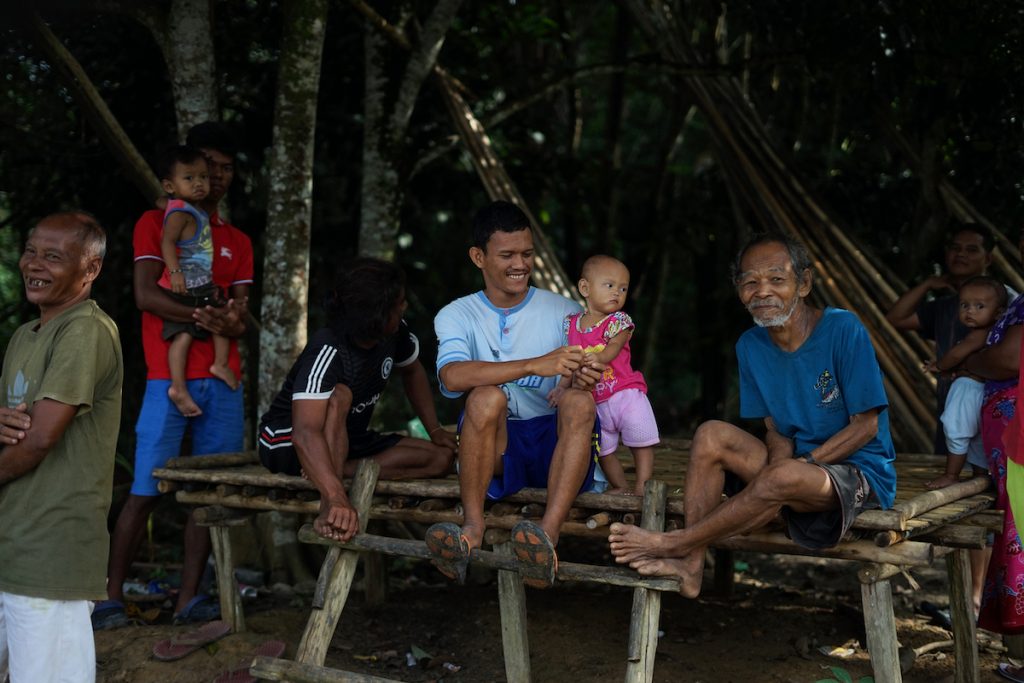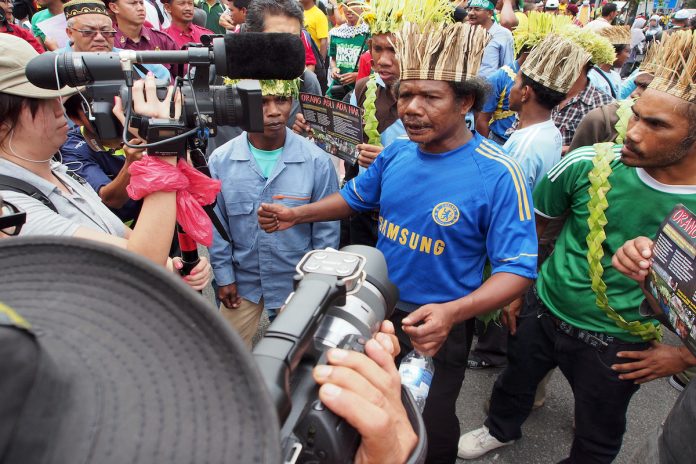Malaysia is reeling from yet another political crisis, which has engulfed the national press in a frenzy of revelation and speculation.
In times like these, the din of political machinations drowns out any noise a relatively small group of people in a rural area can make.
In the rainforests of the northern state of Perak, the indigenous ethnic Semai Orang Asli are in the middle of battling for their very livelihoods, as the state orders in contractors to begin major infrastructure projects on what the Semai claim is their customary land.
It is one more of many land disputes in rural Malaysia.
Most often, landowners — keen to take advantage of soaring prices and sell plots off for development — find themselves facing stiff resistance from the people living off their land.
The most cut-and-dried cases can take years or even decades to resolve, particularly if a community has been living on the land undisturbed for generations.
Yet, the Semai Orang Asli say they are the landowners and the state government is trying to turf them off their own property, warning them to tear down their own homes before they are torn down by contractors.
Historically, the Orang Asli are used to squaring up with these contractors, confrontations that regularly make national and international headlines due to the environmental nature of the dispute.
In this case, however, the Semai were pinning their hopes on a promise, which they say was later broken.
The battle between the Semai and the Perak government began in 2012, when the then-Barisan Nasional (BN) administration earmarked the Gopeng area in which the Semai were living for a major US$690 million hydroelectric dam project.

The Semai naturally disputed the move, as it encroached on their customary land, and would uproot a number of their villages and destroy the ecosystem around them.
BN, however, was never known for its tolerance of the Orang Asli, considering them to be a nuisance because they would not conform, regardless of what the courts said.
Since Malaya gained independence from British rule in 1957, indigenous people spanning the length of the Malayan Peninsula nave found themselves steadily evicted from their native lands in the name of progress — or even greed — over the years, despite having native customary land rights enshrined in the constitution.
In this case, the Semai claim contractors showed up without warning in 2017, bulldozing through a graveyard to make an access road.
Work was subsequently halted while the state government examined impact reports on the local environment and tourism, among others.
Then, crucially for the Semai, then-opposition Pakatan Harapan (PH) representatives, in the run-up to the 2018 general election, promised to kill the project.
Villagers were adamant PH made this promise and voted for the coalition accordingly, believing they could then go about their lives.
A PH representative later confirmed the promise was made but it was a promise that could not be kept.
So, the PH administration greenlit the project and contractors returned to work, warning villagers their homes were under threat.
The villagers feel betrayed. They had put their faith in a new government that promised to fight for them, but would seemingly hide behind bureaucracy when it came to the crunch.
As it turned out, making promises it could not keep would become a hallmark of the PH administration, which would aid in its downfall last month.
In Perak, the villagers felt PH’s excuse that the deal for the hydroelectric dams was too far along to be cancelled legally was flimsy at best.
They had a point.
This project is going ahead despite concerns raised from within the government, never mind civil society groups and not least the Semai.

Little is known about initial tender process for the project, prime contractor Perak Hydro Renewable Energy Corporation, or indeed the benefits for the state.
From start to finish, this smacks of the opaque crony deals that became the hallmark of the BN government, which its PH successor had pledged to stamp out.
Regardless, the PH government, which took over the reins two years ago, said it could not back out of the deal.
Let us read that back: A government cannot back out of a deal.
Right. And the sun rises in the West.
So — if we take that to mean the PH administration could not do what governments have been doing since man first looked up at the sky and said to his tribe: Follow me or that orange blob up there won’t come back tomorrow — it seems even less likely the government could not reach a compromise, especially one that avoided tearing through homes and graveyards.
But apparently not. While the contractors sit poised to start flattening the area once again, the case is now with the High Court.
Unfortunately for the Semai, though, they do not seem to have done themselves any favors.
In the run-up to the case, it was revealed they had not established any formal claim to their land.
This is not as detrimental as it might seem because a claim of formal ownership can be — and was in this case — retroactively submitted to the court.
However, later that claim tripled in size. The reasons for which might be entirely innocent — be they oversight or accidental omission — but to the casual observer, not least their opponent, it would seem they are shifting the goalposts and any half-decent lawyer will pounce on this in litigation.
On top of which, Malaysia has had a change of government in the past two weeks.
Perikatan Nasional — the new and ‘improved’ Barisan Nasional — is back in power and ready to return to business as usual before the 2018 general election.
So, it is most likely back to square one for the Semai and they will have to find somewhere else to live, regardless of the High Court’s decision.
Gareth Corsi is a freelance journalist based in Malaysia. The views and opinions expressed in this article are those of the author and do not necessarily reflect the official editorial position of LiCAS.news.









